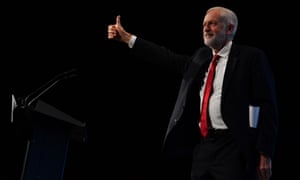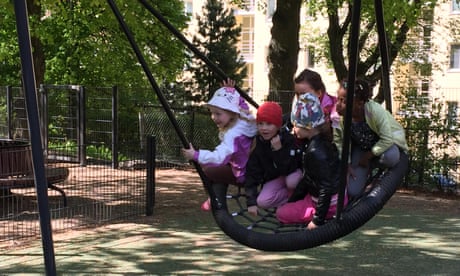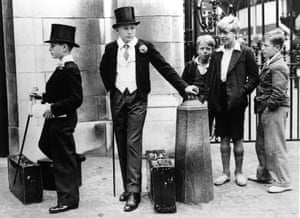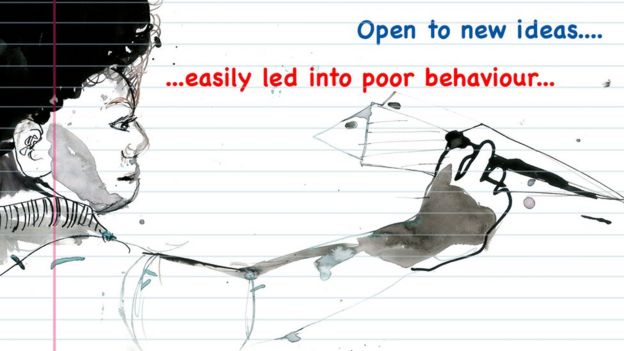'People will forgive you for being wrong, but they will never forgive you for being right - especially if events prove you right while proving them wrong.' Thomas Sowell
Search This Blog
Monday, 15 July 2024
Thursday, 15 June 2023
What elite American universities can learn from Oxbridge
Simon Kuper in The FT
Both the US and UK preselect their adult elites early, by admitting a few 18-year-olds into brand-name universities. Everyone else in each age cohort is essentially told, “Sorry kid, probably not in this lifetime.”
The happy few come disproportionately from rich families. Many Ivy League colleges take more students from the top 1 per cent of household incomes than the bottom 60 per cent. Both countries have long agonised about how to diversify the student intake. Lots of American liberals worry that ancestral privilege will be further cemented at some point this month, when the Supreme Court is expected to outlaw race-conscious affirmative action in university admissions.
Whatever the court decides, US colleges have ways to make themselves more meritocratic. They could learn from Britain’s elite universities, which, in just the past few years, have become much more diverse in class and ethnicity. It’s doable, but only if you want to do it — which the US probably doesn’t.
Pressure from the government helped embarrass Oxford and Cambridge into overhauling admissions. (And yes, we have to fixate on Oxbridge because it’s the main gateway to the adult elite.) On recent visits to both universities, I was awestruck by the range of accents, and the scale of change. Oxbridge colleges now aim for “contextual admissions”, including the use of algorithms to gauge how much disadvantage candidates have surmounted to reach their academic level. For instance: was your school private or state? What proportion of pupils got free school meals? Did your parents go to university?
Admissions tutors compare candidates’ performance in GCSEs — British exams taken aged 16 — to that of their schoolmates. Getting seven As at a school where the average is four counts for more than getting seven at a school that averages 10. The brightest kid at an underprivileged school is probably smarter than the 50th-best Etonian.
Oxbridge has made admissions interviews less terrifying for underprivileged students, who often suffer from imposter syndrome. If a bright working-class kid freezes at interview, one Oxford tutor told me he thinks: “I will not let you talk yourself out of a place here.” And to counter the interview coaching that private-school pupils receive, Oxford increasingly hands candidates texts they haven’t seen before.
Oxbridge hosts endless summer schools and open days for underprivileged children. The head of one Oxford college says that it had at least one school visit every day of term. The pupils are shown around by students from similar backgrounds. The message to the kids is: “You belong here.”
It’s working. State schools last year provided a record 72.5 per cent of Cambridge’s British undergraduate admissions. From 2018 to 2022, more than one in seven UK-domiciled Oxford undergraduates came from “socio-economically disadvantaged areas”. Twenty-eight per cent of Oxford students identified as “black and minority ethnic”; slightly more undergraduates now are women than men. Academics told me that less privileged students are more likely to experience social or mental-health problems, but usually get good degrees. These universities haven’t relaxed their standards. On the contrary, by widening the talent pool, they are finding more talent.
Elite US colleges could do that even without affirmative action. First, they would have to abolish affirmative action for white applicants. A study led by Peter Arcidiacono of Duke University found that more than 43 per cent of white undergraduates admitted to Harvard from 2009 to 2014 were recruited athletes, children of alumni, “on the dean’s interest list” (typically relatives of donors) or “children of faculty and staff”. Three-quarters wouldn’t have got in otherwise. This form of corruption doesn’t exist in Britain. One long-time Oxford admissions tutor told me that someone in his job could go decades without even being offered a donation as bait for admitting a student. Nor do British alumni expect preferential treatment for their children.
The solutions to many American societal problems are obvious if politically unfeasible: ban guns, negotiate drug prices with pharmaceutical companies. Similarly, elite US universities could become less oligarchical simply by agreeing to live with more modest donations — albeit still the world’s biggest. Harvard’s endowment of $50.9bn is more than six times that of the most elite British universities.
But US colleges probably won’t change, says Martin Carnoy of Stanford’s School of Education. Their business model depends on funding from rich people, who expect something in return. He adds: “It’s the same with the electoral system. Once you let private money into a public good, it becomes unfair.”
Both countries have long been fake meritocracies. The US intends to remain one.
Saturday, 6 August 2022
Wednesday, 4 May 2022
Monday, 6 December 2021
Wednesday, 11 August 2021
Wednesday, 28 July 2021
Monday, 25 May 2020
Saturday, 28 March 2020
How to get refunds for school fees, season tickets and much more
Coronavirus disruption has changed our day-to-day lives beyond all recognition. Millions of households face difficult choices about their personal finances as they seek to rebalance their budgets and manage the cash flow crunch.
Many will seek refunds on services they have committed to pay for, ranging from education to commuting costs and membership of gyms and clubs, which cannot be provided during the shutdown. Others are seeking refunds or insurance payouts on holidays and flights they had booked.
In such unprecedented times, it pays to know your consumer rights, but these must be weighed against warnings from smaller businesses that failure to pay for services could result in their financial collapse.
Private school fees
The final bell rang on Friday March 20, when the government announced it was closing schools to tackle the coronavirus pandemic. Experts say it is unlikely pupils will return before the end of the summer term and parents with children at fee-paying schools are asking whether they still have to pay.
Some 615,000 children attend independent schools in the UK, with annual fees as high as £45,000 for boarding schools and £25,000 a year for some London day schools.
Under normal circumstances, the next payment date would be for the summer term due at the end of the Easter holidays in April. So will they be expected to pay?
“This is a hugely difficult time for everyone,” says Julie Robinson, chief executive of the Independent Schools Council. “Schools are under immense pressures and this is one of the issues that will be dealt with at school level, depending on their individual policies and contracts with parents.
“We hope parents will bear with schools who need time to clarify government support measures and take stock of their situation and ongoing operations. They are focused on the welfare of their school communities and ensuring continuation of teaching and learning.
“Independent schools are fortunate to have access to effective online learning resources, enabling them to continue education remotely using technological solutions.”
Parents facing financial difficulties should contact their school as soon as possible, says Neil Roskilly, chief executive of the Independent Schools Association. All independent schools offer financial help to families, and while it is usually offered when a child enters a school, it can be extended to those families whose financial circumstances change.
Most private schools have funds available for this situation and can also defer fees if there is the prospect of future employment. This should be over a costed and reasonable timescale, usually is up to 12 months. Schools rarely charge interest.
To help bridge the gap between parental incomes and fees, more than £1bn a year is now provided in fee assistance to over 175,000 students, with about half allocated through means-testing.
“Schools are trying their best to maintain a ‘continuity of education’ via online technology and most parents we have spoken to understand that, and are choosing not to withhold fees,” says Mr Roskilly. “But in some cases, where schools have money in reserves, they are considering returning some of those fees to parents.”
Ellie Spencer, associate solicitor in the commercial dispute resolution team at law firm Goodman Derrick, says: “Parents are paying for a service and they might be able to argue that the school is not providing that service. Even if the school is providing online teaching, this is not the whole service, so parents might be entitled to a discount.”
Private nurseries
Parents of children at private nurseries in the UK can pay about £1,000 a month for 50 hours a week for a child under two, but in London, the average Ofsted-rated facility charges between £70 and £85 a day.
Parents typically pay monthly for nurseries so most are receiving bills for April now when children are already at home.
Nurseries are reacting to the closures in different ways. While some are charging full fees, others are offering discounts for all and some cutting costs specifically for families who have suffered a severe loss of income.
Nurseries have contracts with parents that are entered into when the child starts and the terms and conditions tend to require parents to give a month’s notice. They also usually require parents to continue paying fees during an emergency closure, but previously these have tended to be for a few days because of problems with the building.
Purnima Tanuku, chief executive of National Day Nurseries Association, says: “Whether parents continue to pay fees when a closure is outside of a nursery’s control will depend on the agreements between individual nurseries and their parents. We’re pushing the government hard to offer sufficient financial support so nursery businesses can remain sustainable.”
One parent with two children under five at nursery contacted FT Money to say: “I've just received my monthly £2,000 bill with no offer of a discount. It seems that parents — many of whom can now not go to work — are expected to keep the nurseries going without receiving a service.”
Lawyers say parents should negotiate. Edward Macey-Dare, a litigation and employment partner at Lee Bolton Monier-Williams, says: “Remember, nurseries are going to be under severe pressure as a result of the coronavirus situation and, if they play hardball, they are likely to face numerous parents giving notice to withdraw their children. It seems to me, therefore, that parents have the upper hand in this situation when it comes to negotiating a reduction in fees or more favourable payment terms.”
But others warn that without the financial support, private nurseries could collapse. “Some childminders and nurseries have asked parents to continue to pay their fees to retain their children’s places, even if they are not permitted to offer them childcare services,” says Lynne Rowland, a tax partner at Moore Kingston Smith.
“This is perhaps understandable in the absence of clarity over how the special financial measures apply. But the government should consider offering families full tax relief for these costs, which for many families are as essential as their mortgage or rent payments.”
The government has said that funding for early years entitlements covering up to 30 hours of childcare will continue during any periods of nursery closures. Some nurseries are encouraging key workers to continue sending their children into nursery so they can continue to access this government funding.
Rail season tickets
For many commuters the cost of their annual season ticket is their second biggest monthly bill after their mortgage. To get the best deal, many pay upfront for the year, possibly with an interest-free loan from their employers.
Train companies say annual season tickets will be refunded pro-rata, but to get any money back commuters must have 12 weeks remaining on them. This is because they effectively get 12 weeks of free travel on an annual season ticket. Monthly season tickets need at least six days remaining and weekly ones at least two days. The £10 administrative fee will be waived. S
Someone who bought an annual season ticket for £4,980 at the beginning of the year should be able to get a refund for six months’ travel or £2,490. Refunds should be paid within 28 days. Full refunds can also be claimed for advance and off-peak tickets booked but not used — apply via train company websites.
Transport for London is slightly more generous. It requires six weeks to remain on annual season tickets, seven days on a monthly ticket and three days on a seven-day ticket, and does not charge an administrative fee. Apply for a refund via its website.
Many commuters pay to guarantee a place in their station car park by buying an annual season ticket. A typical permit costs over £1,000. Apply online for refunds to the company that runs the car park.
Sports subscriptions
With no live football likely until June at the earliest and many other major sporting events cancelled or postponed, subscribers to Sky Sports can pause their sports subscription online and it will automatically resume when live football and other major sporting events return.
A message on Sky’s website reads: “While we expect that many of the recently postponed sports events will eventually go ahead, if you wish to pause your sports subscription in the meantime you will not be charged a fee to do so or be held to any notice period.”
BT Sport says that customers on its new “flexible TV” package can pause their subscription and make other changes by logging on to bt.com/tv.
BT says: “For now, we have been busy working on a revised schedule for BT Sport which will include variations of popular shows such as Premier League Tonight, live WWE, Rugby Tonight, BT Sport Films and ESPN Films, recent boxing events and classic football, rugby and other sport fixtures from across the years.
“We understand that this is a difficult time for customers and if they wish to discuss their BT Sport contract or other options, would ask they give us a call.”
When it comes to live sporting events, season ticket holders should check the terms and conditions of their clubs. Tickets for postponed games are usually valid when the game is finally played.
For example, Arsenal’s terms and conditions read: “The club reserves the right to reschedule any match or, if necessary, play the match out of view of the public, without notice and without any liability whatsoever.”
Manchester United’s say: “Where any match is cancelled, abandoned or postponed the club shall have no liability whatsoever to ticket holders,” although ticket holders would be entitled to attend rearranged matches.
Live events
People who had secured Glastonbury tickets have been told that their £50 deposits will be rolled over to next year, after this year’s festival was cancelled.
People with tickets for shows and gigs that have been postponed may find they can only get refunds if they cannot attend the new date. For example, tickets for Trevor Noah at the O2 centre at the beginning of April can be used at the rescheduled shows in September.
Gym membership
Gym members who may have found it difficult to end membership contracts in the past could find that their fees stop automatically.
Virgin Active is automatically freezing all memberships at its clubs with no fees to pay until they reopen. It is crediting members with any fees that have already been paid for April and will also credit for March 21 to 31. Its social channels @VirginActiveUK remain open with advice on workouts to do at home.
Gymbox says that for as long as its clubs are closed there will be a freeze on monthly memberships. No payments will be taken for April and any future months it is closed, and fees for time lost in March will also be credited.
Competition in the gym market means many clubs charge on a month-to-month basis, but fixed memberships could prove trickier to cancel — check the terms of your contract to see if a percentage of your fees could be refunded.
University costs
The Student Loans Company says that university students will still receive their loans for living costs at the beginning of the summer term as scheduled, and their tuition fees will be paid directly — regardless of whether their university or provider has made alternative arrangements for teaching.
Universities UK says that while it understands that missed teaching time was “unsettling” for students, universities moving teaching online “does not amount to a closure”. However, many students will have left their campus and student accommodation and returned home to their parents.
This week, Unite, the UK’s largest student accommodation provider, said it would allow students to leave their tenancies early. They will not have to pay their rent for the final term if they tell Unite that they have left or are leaving by 5pm on April 10.
Unite charges an average weekly rent for en suite accommodation of £138 outside London and £221 in the capital.
Unite says: “We are also very conscious that some students may need to extend their stay with us, for example, international students who may not be able to return home due to travel restrictions or those estranged from family without the traditional support network in place. For these students, we will do everything we can to support them beyond their tenancy period at no extra charge.”
University-owned halls of residence may be more willing to issue a partial refund if students have moved out, but private student landlords are less likely to offer any leniency. Many parents will be obliged to keep paying if they offered to act as rental guarantors.
Flights and holidays
If your flight or package holiday was scheduled before April 16 and is cancelled, you do not have to accept a voucher or credit note or be forced to rebook. You are legally entitled to a refund.
The advice not to travel abroad from the Foreign and Commonwealth Office (FCO) also means you should be able to claim from your travel insurer for consequential losses, such as booked hotel rooms or car hire.
When flights and holidays are cancelled, airlines and travel agents are obliged to issue refunds or allow you to rebook for a future date. Under the Package Holiday and Linked Travel Regulations 2018, holidaymakers are also due a full refund.
However, consumer group Which? has found that many companies are ignoring this requirement and are only offering consumers credit vouchers or the chance to reschedule.
Martyn James of Resolver, a free online complaints company, says: “If the hotel, holiday pr flight has been cancelled then you should get a refund as it’s not you, it’s them.”
If firms insist on providing vouchers instead of refunding, he says: “Ask the firm to send you the terms and conditions where it says they can do this. If you don’t think it’s fair, make a complaint.”
British Airways says it will rebook or refund for tickets under its “Manage My Booking” facility. Ryanair has removed its flight change fees on all bookings next month.
Airlines are experiencing an extremely high volume of calls. BA, easyJet, Ryanair and Virgin Atlantic are asking that only passengers who were due to travel in the next 72 hours call or message, so they can help those needing urgent rebooking.
Most travel insurers will ask you to seek a refund from the travel firm first, but if your policy covers you for cancellation, then you can make a claim.
Airbnb says that reservations for stays and experiences made on or before March 14 with a check-in date between then and April 14 will be eligible for a full refund. If a hotel has closed, you are also due a full refund.
If airlines or holiday companies will not pay for cancelled flights or holidays, those who paid by credit card should be able to get compensation under Section 75 of the Consumer Credit Act. But if the hotel is still able to offer the accommodation you are unlikely to get a refund because the provider has not broken their agreement with you.
For bookings after April 16, the situation is less clear. Holidaymakers will have to wait to find out if their flights are affected and what the FCO advice is on travel at that time.
Thursday, 19 September 2019
There is no longer any justification for private schools in Britain

A few years back, I finished a PhD on how to tackle Britain’s unequal life chances – which, among other measures, included abolishing private schools. Dusty academia seemed the home for this sort of proposal, one that has long filled endless papers but never quite makes it off the page and into reality.
That is no longer the case. In a few days, the Labour party will debate the future of private schools. The grassroots group Labour Against Private Schools (Laps) will bring a motion to the annual party conference in Brighton calling for the full integration of state and private schools, including nationalising the endowments of the hugely wealthy public schools. It has support from six constituency parties so far and the backing of senior party figures, with the shadow chancellor, John McDonnell, putting his weight behind the motion this week. A leaked memo to the Telegraph last week noted that the party is already considering making a manifesto pledge to remove tax breaks from the sector – while leaving the door open to getting rid of the schools altogether.
Removing charitable status is rightly no longer seen as radical. In 2017, that well-known lefty Michael Gove declared that private schools were “welfare junkies”, calling the VAT exemption “egregious state support to the already wealthy so that they might buy advantage for their own children”. The classic argument that private schools deserve tax breaks because they provide bursaries to poorer children is as thin as paper: in 2017, only 1% of private school pupils were schooled for free, while figures show “financial assistance” is considerably more likely to go to affluent middle-class families than children in need.
It’s exciting, then, that the conversation is no longer restricted to this. For decades, private schools have held an untouchable air in this country. We know very well the damage they cause – both to the children whose education is harmed by losing advantaged peers and their influential parents, and to a society that is stifled by positions of power handed out on the basis of wealth rather than talent. We know how bizarre this set-up is – that 7% of schoolchildren will go on to control much of the media, the judiciary and parliament. And yet it is greeted with borderline rabid resistance by many commentators, while even those on the left have been reluctant to argue for comprehensive solutions. It typifies the worst of class privilege, where a small section of society is permitted to buy power and influence despite all the evidence of the damage that causes, and the rest of us must shrug our shoulders and accept this as an inevitability.
What feels different now is that these ideas are becoming mainstream at a tipping point in this country. Years of austerity have highlighted the resources gap between the highly funded private sector and the starved state sector. When many working-class children don’t have basic equipment in class, the dominance of elite schools feels even more obscene. The calamity of Eton alumni taking their turn at Downing Street, meanwhile, is now a real-time display of how dysfunctional a nation becomes when structured to be forever run by a tiny pocket of the wealthy.
The abolition of private schools is not an outlandish idea but rather an extension of what we already do. Societies constantly set limits on how far a parent can go in giving their child an advantage in life – that’s why it’s illegal for a mother to bribe a university admissions officer to give her son a place, and unethical for a father to do his daughter’s GCSE coursework. This is because it is widely understood that no matter how natural a parent’s desire to do the best for their child, it does not trump the good of society. Other countries, such as Finland, have already acted on this by slowly merging private and state schools.
When many working-class children don’t have basic equipment in class, the dominance of elite schools feels even more obscene
That the recent Telegraph front page had to rely on the retro “politics of envy” accusation to describe Labour’s ideas – akin to a playground cry of “You’re just jealous!” – shows how weak critics’ arguments are. In an era in which the damage of inequality is ever clearer and the movements to tackle it are growing stronger, those who cannot comprehend a desire to make life fairer for other people’s children sound increasingly out of touch.
It’s clear that tackling private schools alone is not enough to level the playing field, but that there are multiple causes of inequality doesn’t seem a good argument to ignore one of them.
The protection of a two-tier school system comes down to a fundamental question about what we think education should be. If we want the education system to be about giving every child a fair shot, then merging state and private schools is the logical move. The question is: what is really stopping our children being educated together?
Sunday, 15 September 2019
Never mind ‘tax raids’, Labour – just abolish private education

The British class system is an organised racket. It concentrates wealth and power in the hands of the few, while 14 million Britons languish in poverty.
If you are dim but have rich parents, a life of comfort, affluence and power is almost inevitable – while the bright but poor are systematically robbed of their potential. The well-to-do are all but guaranteed places at the top table of the media, law, politics, medicine, military, civil service and arts. As inequality grows, so too does the stranglehold of the rich over democracy. The wealthiest 1,000 can double their fortunes in the aftermath of financial calamity, while workers suffer the worst squeeze in wages since the Napoleonic wars. State support is lavished on rich vested interests – such as the banks responsible for Britain’s economic turmoil – but stripped from disabled and low-paid people. The powerful have less stressful lives, and the prosperous are healthier, expecting to live a decade longer than those living in the most deprived areas.

No grammar schools, lots of play: the secrets of Europe’s top education system
Unless this rotten system is abolished, Britain will never be free of social and political turmoil. It is therefore welcome – overdue, in fact – to read the Daily Telegraph’s horrified front-page story: “Corbyn tax raid on private schools”.
The segregation of children by the bank balances of their parents is integral to the class system, and the Labour Against Private Schools group has been leading an energetic campaign to shift the party’s position. The party is looking at scrapping the tax subsidies enjoyed by private education, which are de facto public subsidies for class privilege: moves such as ending VAT exemptions for school fees, as well as making private schools pay the rates other businesses are expected to. If the class system has an unofficial motto, it is “one rule for us, and one rule for everybody else”. Private schools encapsulate that, and forcing these gilded institutions to stand on their own two feet should be a bare minimum.
More radically, Labour is debating whether to commit to abolishing private education. This is exactly what the party should do, even if it is via the “slow and painless euthanasia” advocated by Robert Verkaik, the author of Posh Boys: How English Public Schools Ruin Britain. Compelling private schools to apply by the same VAT and business rate rules as others will starve them of funds, forcing many of them out of business.
Private education is, in part, a con: past OECD research has suggested that there is not “much of a performance difference” between state and private schools when socio-economic background is factored in. In other words, children from richer backgrounds – because the odds are stacked in their favour from their very conception – tend to do well, whichever school they’re sent to. However unpalatable it is for some to hear it, many well-to-do parents send their offspring to private schools because they fear them mixing with the children of the poor. Private schools do confer other advantages, of course: whether it be networks, or a sense of confidence that can shade into a poisonous sense of social superiority.
Mixing together is good for children from different backgrounds: the evidence suggests that the “cultural capital” of pupils with more privileged, university-educated parents rubs off on poorer peers without their own academic progress suffering. Such mixing creates more well-rounded human beings, breaking down social barriers. If sharp-elbowed parents are no longer able to buy themselves out of state education, they are incentivised to improve their local schools.
Look at Finland: it has almost no private or grammar schools, and instead provides a high-quality local state school for every pupil, and its education system is among the best performing on Earth. It shows why Labour should be more radical still: not least committing to abolishing grammar schools, which take in far fewer pupils who are eligible for free school meals.
Other radical measures are necessary too. Poverty damages the educational potential of children, whether through stress or poor diet, while overcrowded, poor-quality housing has the same impact too. Gaps in vocabulary open up an early age, underlining the need for early intervention. The educational expert Melissa Benn recommends that, rather than emulating the often narrow curriculums of private schools, there should be a move by state schools away from exam results: a wrap-around qualification could include a personal project, community work and a broader array of subjects.
In the coming election, Labour has to be more radical and ambitious than it was 2017. At the very core of its new manifesto must be a determination to overcome a class system that is a ceaseless engine of misery, insecurity and injustice.
Britain is a playground for the rich, but this is not a fact of life – and a commitment to ending private education will send a strong message that time has finally been called on a rotten class system.
Sunday, 17 March 2019
Americans really pay a bribe for a good education? In Britain, we’ve got far subtler ways

“Dude, dude, what do you think, I’m a moron?” Thus, one of the parents accused of involvement in the US college bribery racket. He’d been warned – by a wiretapped conspirator – not to reveal that he paid $50,000 for his daughter’s fraudulent test results, part of a system the fixer calls “the side door”.
Appropriately soothed – “I’m not saying you’re a moron” – the accused father is recorded, by the FBI, assuring the scam’s organiser that he’ll deliver, if required, the agreed fiction. “I’m going to say that I’ve been inspired how you’re helping underprivileged kids get into college. Totally got it.”
Although many of the best bits of an FBI affidavit – presenting the case against the accused parents – have been widely circulated, this sublime page-turner deserves to be enjoyed in full, if not put up for literary awards pending film adaptation (Laura Dern has been suggested for Felicity Huffman), and made compulsory reading in all admission departments. It’s not just that extracts can’t convey the fathomless entitlement and mendacity exhibited by affluent, ostensibly respectable parents. They can’t begin to do justice to the affidavit’s entertainment value as savage social comedy, something productions of Molière often attempt, but rarely achieve.
Even the dramatis personae, in the investigation the FBI named “Operation Varsity Blues”, reads like an updated Tartuffe: “Todd Blake is an entrepreneur and investor. Diane Blake is an executive at a retail merchandising firm.” Here, too, cultivated, fluent people, many of whom also sound deluded, greedy and hypocritical, appear to be playing with their children’s lives for no reason beyond self-gratification. But the dialogue, when not jaw-dropping, races along (“And it works?” asks a defendant. “Every time.”), the plots and motives are horribly plausible, and the jeopardy is evidently real to the alleged conspirators, even if the all-encompassing irony of their alleged scheme is not. “She actually won’t really be part of the water polo team, right?”
And from a fellow future defendant, on the risks, if this status-enhancing, child-perfecting scam were to be discovered: “You know, the, the embarrassment to everyone in the communities. Oh my God, it would just be – yeah. Ugh.”
Are FBI affidavits regularly as good as the tale of Operation Varsity Blues? If so, the death of the novel should be easier to bear. Although this document has one overriding purpose – to show that accused parents and witnesses colluded in fraudulent applications – special thanks are due to special agent Laura Smith, the author, who never writes a dull page. Maybe the individual cases were fully as compelling as this edited evidence suggests. Or maybe agent Smith’s organisation of her material really does indicate considerable, dry artistry? Either way, you cherish the detail when an accused parent replies, following an allegedly fraudulently extracted college offer: “This is wonderful news! [high-five emoji].”

Actress Felicity Huffman has been indicted in the university admissions scandal. Photograph: David McNew/AFP/Getty Images
Ditto Smith’s generous quotation from a statement provided for a girl who has been reinvented, apparently for scam purposes, as a “US Club Soccer All American”: “On the soccer or lacrosse etc I am the one who looks like a boy amongst girls with my hair tied up, arms sleeveless, and blood and bruises from head to toe.”
Not, of course, that’s there’s anything illegal, here or in the US, about reproducing personal statements from professional suppliers or collaborating with a teacher and/or parent – the latter, though risibly unfair, is routine. Another Varsity Blues alleged tactic, that of buying a diagnosis requiring extra exam time, may have no exact UK parallel but, according to a 2017 BBC report, one in five children in independent schools received extra time for GCSE and A-levels. David Kynaston and David Green, in a powerful critique of independent schools, recently pointed out various advantages, made possible by high fees: “Far greater resources are available for diagnosing special needs, challenging exam results and guiding university applications.”
If, mercifully, UK universities are low on dependable side doors, the shamelessness of some of the US defendants, as they appear to pursue their imagined birthright (Ivy League bragging rights) can still sound uncomfortably familiar. Many British parents, equally fearful of mediocrity, are similarly unabashed on local tricks and stratagems – not only private education, but house moves, music lessons (for reserved school places), intensive coaching, internships, resits, religious conversions, fake addresses, and, the Times now reports, FOI requests to Oxbridge, from disappointed parents – that will end up, added to financial and cultural capital, delivering much the same outcome as the US scandal. Legal or otherwise, the result is enhanced educational opportunities for the privileged and untalented, fewer for the talented but disadvantaged.
The pervasive cunning is hardly surprising given the official esteem for “sharp-elbowed” parental operators, who, David Laws once argued, set a fine example. It follows, as demonstrated by UK politicians on all sides, that extreme resourcefulness in, say, keeping places from less fortunate residents, is readily passed off as understandable dedication as opposed to insatiable self-interest. Don’t we all want [smiling face with halo emoji] the best for our kids?
Following some unspecified epiphany, David Cameron, of previously wavering faith, secured places at an oversubscribed church school, some distance from No 10, requiring proof of “Sunday worship in a church at least twice a month for 36 months before the closing applications date”. Equally instructively, my own, affluent MP, Emily Thornberry, had, earlier, hoovered up three of the few precious places at an outstanding, part-selective school in Hertfordshire, 13 miles from home, which tradition annually reserves for her Islington constituents. On Twitter, she has reminded critics: “All my children educated in the state sector.” There is no suggestion that either MP has broken any laws.
There must be, beyond legality, some ethically significant factor that makes non-paying wangling infinitely superior to the ugly, US variety. But you probably have to buy a place at Harvard to find out what it is.
Sunday, 13 January 2019
Britain’s private school problem
The existence in Britain of a flourishing private-school sector not only limits the life chances of those who attend state schools but also damages society at large, and it should be possible to have a sustained and fully inclusive national conversation about the subject. Whether one has been privately educated, or has sent or is sending one’s children to private schools, or even if one teaches at a private school, there should be no barriers to taking part in that conversation. Everyone has to live – and make their choices – in the world as it is, not as one might wish it to be. That seems an obvious enough proposition. Yet in a name-calling culture, ever ready with the charge of hypocrisy, this reality is all too often ignored.
For the sake of avoiding misunderstanding, we should state briefly our own backgrounds and choices. One of our fathers was a solicitor in Brighton, the other was an army officer rising to the rank of lieutenant-colonel; we were both privately educated; we both went to Oxford University; our children have all been educated at state grammar schools; in neither case did we move to the areas (Kent and south-west London) because of the existence of those schools; and in recent years we have become increasingly preoccupied with the private-school issue, partly as citizens concerned with Britain’s social and democratic wellbeing, partly as an aspect of our professional work (one as an economist, the other as a historian).
In Britain, private schools – including their fundamental unfairness – remain the elephant in the room. It would be an almost immeasurable benefit if this were no longer the case. Education is different. Its effects are deep, long-term and run from one generation to the next. Those with enough money are free to purchase and enjoy expensive holidays, cars, houses and meals. But education is not just another material asset: it is fundamental to creating who we are.
What particularly defines British private education is its extreme social exclusivity. Only about 6% of the UK’s school population attend such schools, and the families accessing private education are highly concentrated among the affluent. At every rung of the income ladder there are a small number of private-school attenders; but it is only at the very top, above the 95th rung of the ladder – where families have an income of at least £120,000 – that there are appreciable numbers of private-school children. At the 99th rung – families with incomes upwards of £300,000 – six out of every 10 children are at private school. A glance at the annual fees is relevant here. The press focus tends to be on the great and historic boarding schools – such as Eton (basic fee £40,668 in 2018–19), Harrow (£40,050) and Winchester (£39,912) – but it is important to see the private sector in the less glamorous round, and stripped of the extra cost of boarding. In 2018 the average day fees at prep schools were, at £13,026, around half the income of a family on the middle rung of the income ladder. For secondary school, and even more so sixth forms, the fees are appreciably higher. In short, access to private schooling is, for the most part, available only to wealthy households. Indeed, the small number of income-poor families going private can only do so through other sources: typically, grandparents’ assets and/or endowment-supported bursaries from some of the richest schools. Overwhelmingly, pupils at private schools are rubbing shoulders with those from similarly well-off backgrounds.
They arrange things somewhat differently elsewhere: among affluent countries, Britain’s private‑school participation is especially exclusive to the rich. In Germany, for instance, it is also low, but unlike in Britain is generously state-funded, more strongly regulated and comes with modest fees. In France, private schools are mainly Catholic schools permitted to teach religion: the state pays the teachers and the fees are very low. In the US there is a very small sector of non-sectarian private schools with high fees, but most private schools are, again, religious, with much lower fees than here. Britain’s private-school configuration is, in short, distinctive.

The statistics also tell a story. The proportion of prominent people in every area who have been educated privately is striking, in some cases grotesque. From judges (74% privately educated) through to MPs (32%), the numbers tell us of a society where bought educational privilege also buys lifetime privilege and influence. “The dogged persistence of the British ‘old boy”’ is how a 2017 study describes the traditional dominance of private-school alumni in British society. This reveals the fruits of exploring well over a century of biographical data in Who’s Who, that indispensable annual guide to the composition of the British elite. For those born between the 1830s and 1920s, roughly 50-60% went to private schools; for those born between the 1930s and 1960s, the proportion was roughly 45-50%. Among the new entrants to Who’s Who in the 21st century, the proportion of the privately educated has remained constant at around 45%. Going to one of the schools in the prestigious Headmasters’ and Headmistresses’ Conference (HMC) still gives a 35 times better chance of entering Who’s Who than if one has not attended an HMC school; while those attending the historic crème de la crème, the so-called Clarendon Schools (Charterhouse, Eton, Harrow, Merchant Taylors’, Rugby, St Paul’s, Shrewsbury, Westminster, Winchester), are 94 times more likely to join the elite than any ordinary British-educated person.
Even if one’s child never achieves celebrity, sending him or her to a private school is usually a shrewd investment – indeed, increasingly so, to judge by the relevant longitudinal studies of two different generations. Take first the cohort born in 1958: in terms of those with comparable social backgrounds, demographic characteristics and early tested skills, and different only in what type of school they attended when they were 11, by the time they were in their early 30s (around 1990) the privately educated were earning 7% more than the state-educated. Compare that with those born in 1970: by the same stage (the early 2000s), the gap between the two categories – again, similar in all other respects – had risen to 21% in favour of the privately educated.
The only realistic starting point for an analysis lies with the assertion that, in the modern era, most of these schools are of high quality, offering a good educational environment. They deploy very substantial resources; respect the need for a disciplined environment for learning; and give copious attention to generating a positive and therefore motivating experience. This argument – the resources point aside – is not an altogether easy one for the left to accept, against a background of it having historically been undecided whether (in the words of one Labour education minister’s senior civil servant in the 1960s) “these schools are so bloody they ought to be abolished, or so marvellous they ought to be made available to everyone”. We do not necessarily accept that all private schools are “marvellous”; but by and large we recognise that, in their own terms of fulfilling what their customers demand, they deliver the goods.
Above all, private schools succeed when it comes to preparing their pupils for public exams – the gateways to universities. In 2018 the proportion of private-school students achieving A*s and As at A-level was 48%, compared with a national average of 26%; while for GCSEs, in terms of achieving an A or grade seven or above, the respective figures were 63% and 23%. At both stages, GCSE and A-level, the gap is invariably huge.

A famous image of school privilege: Harrovians Peter Wagner and Thomas Dyson and local schoolboys George Salmon, Jack Catlin and George Young photographed outside Lord’s cricket ground in 1937 by Jimmy Sime. Photograph: Jimmy Sime/Allsport
There are, of course, some very real contextual factors to these bald and striking figures. Any study must take account of where the children are coming from. Nevertheless, the picture presented by several studies is one of relatively small but still significant effects at every stage of education; and over the course of a school career, the cumulative effects build up to a notable gain in academic achievements.
Yet academic learning and exam results are not all there is to a quality education, and indeed there is more on offer from private schools. At Harrow, for example, its vision is that the school “prepares boys… for a life of learning, leadership, service and personal fulfilment”. It offers “a wide range of high-level extracurricular activities, through which boys discover latent talent, develop individual character and gain skills in leadership and teamwork”. Lesser-known schools trumpet something similar. Cumbria’s Austin Friars, for example, highlights a well-rounded education, proclaiming that its alumni will be “creative problem-solvers… effective communicators… and confident, modest and articulate members of society who embody the Augustinian values of unity, truth and love...”
If, on the whole, Britain’s private schools provide a quality education in both academic and broader terms, how do they deliver that? Four areas stand out.
First, especially small class sizes are a major boon for pupils and teachers alike. Second, the range of extracurricular activities and the intensive cultivation of “character” and “confidence” are important. Third, the high – and therefore exclusive – price tag sustains a peer group of children mainly drawn from supportive and affluent families. And fourth, to achieve the best possible exam results and the highest rate of admission to the top universities, “working the system” comes into play. Far greater resources are available for diagnosing special needs, challenging exam results and guiding university applications. Underpinning all these areas of advantage are the high revenues from fees: Britain’s private schools can deploy resources whose order of magnitude for each child is approximately three times what is available at the average state school.
The relevant figures for university admissions are thus almost entirely predictable. Perhaps inevitably, by far the highest-profile stats concern Oxbridge, where between 2010 and 2015 an average of 43% of offers from Oxford and 37% from Cambridge were made to privately educated students, and there has been no sign since of any significant opening up. Top schools, top universities: the pattern of privilege is systemic, and not just confined to the dreaming spires. Going to a top university, it hardly needs adding, signals a material difference, especially in Britain where universities are quite severely ranked in a hierarchy.
Ultimately, does any of this matter? Why can one not simply accept that these are high-quality schools that provide our future leaders with a high-quality education? Given the thorniness – and often invidiousness – of the issue, it is a tempting proposition. Yet for a mixture of reasons – political and economic, as well as social – we believe that the issue represents in contemporary Britain an unignorable problem that urgently needs to be addressed and, if possible, resolved. The words of Alan Bennett reverberate still. Private education is not fair, he famously declared in June 2014 during a sermon at King’s College Chapel, Cambridge. “Those who provide it know it. Those who pay for it know it. Those who have to sacrifice in order to purchase it know it. And those who receive it know it, or should.”
Consider these three fundamental facts: one in every 16 pupils goes to a private school; one in every seven teachers works at a private school; one pound in every six of all school expenditure in England is for the benefit of private-school pupils.
The crucial point to make here is that although extra resources for each school (whether private or state) are always valuable, that value is at a diminishing rate the wealthier the school is. Each extra teacher or assistant helps, but if you already have two assistants in a class, a third one adds less value than the second. Given the very unequal distribution of academic resources entailed by the British private school system, it is unarguable that a more egalitarian distribution of the same resources would enhance the total educational achievement. There is, moreover, the sheer extravagance. Multiple theatres, large swimming pools and beautiful surroundings with expensive upkeep are, of course, nice to have and look suitably seductive on sales brochures – but add relatively little educational value.
Further inefficiency arises from education’s “positional” aspect. The resources lift up children in areas where their rank position on the ladder of success matters, such as access to scarce places at top universities. To the considerable extent this happens, the privately educated child benefits but the state-educated child loses out. This lethal combination of private benefit and public waste is nowhere more apparent than in the time and effort that private schools devote to working the system, to ease access to those scarce places.
What about the implications for our polity? The way the privately educated have sustained semi-monopolistic positions of prominence and influence in the modern era has created a serious democratic deficit. The unavoidable truth is that, by and large, the increasingly privileged and entitled products of an elite private education have – almost inevitably – only a limited and partial understanding of, and empathy with, the realities of everyday life as lived by most people. One of those realities is, of course, state education. It marked some kind of apotheosis when in July 2014 the appointment of Nicky Morgan (Surbiton High) as education secretary meant that every minister in her department at that time was privately educated.
On social mobility, there has been in recent years an abundance of apparently sincere, well-meaning rhetoric, not least from our leading politicians. “Britain has the lowest social mobility in the developed world,” laments David Cameron in 2015. “Here, the salary you earn is more linked to what your father got paid than in any other major country. We cannot accept that.” In 2016 Jeremy Corbyn declares his movement will “ensure every young person has the opportunities to maximise their talents”, while Theresa May follows on: “I want Britain to be a place where advantage is based on merit not privilege; where it’s your talent and hard work that matter, not where you were born, who your parents are or what your accent sounds like.” Rather like corporate social responsibility in the business world, social mobility has become one of those motherhood-and-apple-pie causes that it is almost rude not to utter warm words about.
Yet the mismatch between such sentiments and policymakers’ practical intentions is palpable. The Social Mobility Commission, with cross-party representation, reported regularly on what government should do, but in December 2017 all sitting members resigned in frustration at the lack of policy action in response to their recommendations.
The underlying reality of our private-school problem is stark. Through a highly resourced combination of social exclusiveness and academic excellence, the private-school system has in our lifetimes powered an enduring cycle of privilege. It is hard to imagine a notable improvement in our social mobility while private schooling continues to play such an important role. Allowing, as Britain still does, an unfettered expenditure on high-quality education for only a small minority of the population condemns our society in seeming perpetuity to a damaging degree of social segregation and inequality. This hands-off approach to private schools has come to matter ever more, given over the past half-century the vastly increased importance in our society of educational credentials. Perhaps once it might have been conceivable to argue that private education was a symptom rather than a cause of how privilege in Britain was transferred from one generation to the next, but that day is long gone: the centrality of schooling in both social and economic life – and the Noah’s flood of resources channelled into private schools for the few – are seemingly permanent features of the modern era. The reproduction of privilege is now tied in inextricably with the way we organise our formal education.
Ineluctably, as we look ahead, the question of fairness returns. If private schooling in Britain remains fundamentally unreconstructed, it will remain predominantly intended and destined for the advantage of the already privileged children who attend.
We need to talk openly about this problem, and it is time to find some answers. Some call for the “abolition” of private schools – whatever that might mean. We do not call for that, because we think it is better – and feasible – to harness for all the good qualities of private schools. Feasible reforms are available; these do not require excessive commitments from the Treasury, but do require a political commitment.
We are, however, under no illusions about the task of reform. The schools’ links with powerful vested interests are close and continuous. London’s main clubs (dominated by privately educated men) would be one example; the Church of England (closely connected with many private schools, from Westminster downwards) would be another. Or take the City of London, where in that historic and massively wealthy square mile not only do individual livery companies have an intimate involvement with a range of private schools, but the City corporation itself supports an elite trio in Surrey and London (City of London, City of London school for girls, City of London Freemen’s school). While as for the many hundreds of individual links between “top people” and private schools, often in the form of sitting on governing bodies, it only needs a glance at Who’s Who to get the gist. The term “the establishment” can be a tiresome one, too often loosely and inaccurately used, but in the sense of complementary networks of people at or close to the centres of power and wealth, it actually does mean something.

All of which leaves the private schools almost uniquely well placed to make their case and protect their corner. They have ready access to prominent public voices speaking on their behalf, especially in the House of Lords; they enjoy the passive support of the Church of England, which is distinctly reluctant to draw attention to the moral gulf between the aims of ancient founders and the socioeconomic realities of the present; and of course, they have no qualms about utilising all possible firepower, human as well as media and institutional, to block anything they find threatening.
The great historian EP Thompson wrote more than half a century ago about The Peculiarities of the English. Historically, those peculiarities have been various, but the most important – and pervasive in its consequences – has been social class. Of course, things to a degree have changed since Thompson’s time. The visible distinctions of dress and speech have been somewhat eroded, if far from obliterated; the obvious social manifestations of a manufacturing economy have been replaced by the more fluid forms of a service economy; the increasing emphasis of reformers and activists has been on issues of gender and ethnicity; and a series of politicians and others have sought to assure us that we are moving into “a classless society”. Yet the fundamental social reality remains profoundly and obstinately otherwise. Britain is still a place where more often than not it matters crucially not only to whom one has been born, but where and in what circumstances one has grown up.
It would be manifestly absurd to pin the blame entirely on the existence over the past few centuries of a flourishing private-school sector. Even so, given that these schools have been and still are places that – when the feelgood verbiage is stripped away – ensure that their already advantaged pupils retain and extend their socio‑economic advantages in later life, common sense places them squarely in the centre of the frame.
Is it possible in Britain over the next 10 or 20 years to build a sufficiently widespread consensus for reform? Or, at the very least, to begin to have a serious, sustained, non-name-calling, non-guilt-ridden national conversation on the subject of private education? A poll we commissioned from Populus shows a virtually landslide majority for a perception of unfairness about private education, indicating that public opinion is potentially receptive to grappling with the issue and what to do about it. The poll reveals, moreover, that even those who have been privately educated, or have chosen to educate their own children privately, are more likely than not to have a perception of unfairness.
The question of what to do about a sector educating only some 6% of our school population might seem relatively trifling, and difficult to prioritise (especially in challenging economic circumstances), compared with say the challenges of quality teacher recruitment across the state sector or the whole vital area of early-years learning. Yet it would be a huge mistake to underestimate the seriously negative educational aspects of the current dispensation and to continue to marginalise the private-school question. The private schools’ reach is very much broader than their minority share of school pupils implies. Unless some radical reform is set in train, an unreconstructed private-school system, with its enormous resource superiority and exclusiveness hanging over the state system as a beacon for unequal treatment and privilege, would make it hard to sustain a fully comprehensive and fair state education system.
Ultimately, the issue is at least as much about what kind of society one might hope the Britain of the 2020s and 2030s to be. A more open society in which upward social mobility starts to become a real possibility for many children, not just a few lucky ones? A society in which the affluent are not educated in enclaves, and in which schooling for the affluent is not funded at something like three times the level of schooling for the less affluent? A society in which the pursuit through education of greater equality of life chances, seeking to harness the talents of all our children, is a matter of real and rigorous intent? A society in which there is a just relationship between the competing demands of liberty and equity, and in which we are, to coin a phrase, all in it together? For the building of such a society, or anything even remotely close, the issue of private education is pivotal, both symbolically and substantively. The reform of private schools will not alone be sufficient to achieve a good education system for all, let alone the good society; but it surely is a necessary condition. At this particular moment in our island story, the future seems peculiarly a blank sheet. Everything is potentially on the table. And for once, that has to include the engines of privilege. For if not now, when?
• Engines of Privilege: Britain’s Private School Problem by Francis Green and David Kynaston is published by Bloomsbury on 7 February (£20). To order a copy for £17.60 go to guardianbookshop.com or call 0330 333 6846. Free UK p&p over £10, online orders only. Phone orders min p&p of £1.99
How to do it: feasible reform options
There are broadly two types of option: those that handicap private schools, making them less attractive to parents, and those that envisage “crossing the tracks” – some form of integration with the state-school sector. Some reforms would have much more of an impact than others.
1. Handicaps
Contextual admissions to universities Where universities, especially the high-status ones, make substantial allowances for candidates’ school background; alternatively, as another method of positive discrimination, some form of a quota system.
Upping the cost Where the fees are substantially raised, making some parents switch away from the private-school sector and opt for state schools. Even though tax subsidies are not huge, the government could reduce them, for example by taking away charitable status (from those schools that are charities) or by requiring that all schools pay business rates in full (as in Scotland from 2020).
Alternatively, something that would “hurt” a bit more, government could directly tax school fees (as in Labour’s manifesto pledge to impose VAT or in Andrew Adonis’s proposed 25% “educational opportunity tax”).
2. Crossing the tracks
There are several proposed schemes for enabling children from low-income families to attend private schools. Mainly, these would leave it to schools to choose how they select their pupils. Some are relatively small in scope, including a proposal from the Independent Schools Council that would involve no more than 2% of the private-school population. Others are more ambitious: the Sutton Trust’s Open Access Scheme proposes that all places at about 80 top private secondary day schools would be competed for on academic merit. The government would subsidise those who could not afford the fees.
In another type of partial integration, schools would select a proportion of state-funded pupils according to the Schools Admissions Code, meaning that the government or local government would set the principles for selection and the extra places would become an extension to the state system. We suggest a Fair Access Scheme, where the schools would be obliged initially to recruit one-third of their pupils in this way, with a view to the proportion rising significantly over time.
Friday, 6 July 2018
What does teacher's report really mean?
- Is a sociable member of the class: Doesn't really come to school to work, much prefers having a gossip in the toilets
- Knows their own mind: Not particularly good at doing what they are asked to do
- Always enthusiastic when working in a group: Likes to be in charge, a proper bossy boots
- Full of self-confidence: A little too arrogant and won't take being told they are wrong

- Needs to channel their enthusiasm into their own work: Please get on with your own work and leave the rest of the class to get on with their own
- Is always curious: Shows too much interest in anything and everything except their work
- Enthusiastic contributor to class discussions: Always has an opinion on everything and shares it loudly at every opportunity
- Displays excellent listening skills: Never has an opinion on anything, would rather self-combust than put their hand up

- Open to new ideas: Easily led into poor behaviour
- Wonderful unique character: Thank goodness there is only one like you in my class
- Has shown an interest in self-guided learning: Decides on a daily basis which work to complete
- Has an interesting and inquiring mind: Does your child ever stop asking questions?
- Occasionally lacks focus: Sits as far from the window as possible to prevent daydreaming
- Has a strong sense of right and wrong: Bit of a telltale if we are honest

- Lively and enthusiastic: Goodness me your child is hard work
- Has a wide circle of friends: I have run out of seats to put your child in where they won't chat
- Knows the school rules well: Is reminded by me of them daily
- Makes everyone smile: Bit of a clown
- A bubbly, fun-loving personality: Honestly child, calm it down a little

- Is ready for a new challenge: I'm counting down the days until the end of term
- Enjoys working independently: Finds sharing hard
- Is a pleasure to teach: Honestly, your child has helped preserve my sanity this year